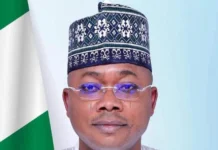The Plateau Ministry of Lands, Survey and Urban Planning, says it had keyed into a four-year World Bank programme aimed at harnessing tax accruals from property in the state, the commissioner in the ministry has said.
The commissioner, Mr Yakubu Dati, who disclosed this to journalists, after a closed door meeting with the Gbong Gwom Jos, in Jos, on Friday, explained that globally, property taxation formed the core of Internally Generated Revenue (IGR) for most governments.
The News Agency of Nigeria (NAN) reports that The State Fiscal Transparency, Accountability and Sustainability (SFTAS) a World Bank programme, was born out of a joint agreement between the Federal Government of Nigeria and the World Bank.
Specifically, it was designed to strengthen fiscal transparency, accountability and sustainability in Nigerian states, as a means to improving their revenue base, increasing fiscal efficiency in public expenditure and reducing the debt overhang.
The programme would run from 2018 to 2022, with funding of $750 million dollars for 22 states across the country.
“We are on a series of interactions and enlightenment for the property registration programme which is sponsored by the World Bank.
“The project is a Nigerian government initiative in ensuring the harnessing of property taxes and the very key we need to tap into revenue sources, to meet with government responsibilities.
“The world is facing challenges due to COVID-19 which has shutdown traditional revenue sources, so, we had to shift to ingenious ways of generating revenue,” the commissioner said.
He disclosed that 1,200 households, across 6 Local Government Areas of the state, would their homes registered for which they would pay a sum, adding that the citizens would feel the benefits of the programme, even as the government prepare to continue with it after its 2022 closure date.
The state Programme Manager, Mr Solomon Mulong, said that because the country was at a very low ebb economically, it needed diverse ways to generate revenue.
Mulong said the traditional institution was key for any form of reform to be undertaken, hence the need to visit the Gbong Gwom Jos, Chairman of the Traditional Council in the state, to introduce him to the programme so as to enlighten his subjects.
He said that the programme, which began in Oct. 2020 in the state, would commence enumeration only as soon as the World Bank sent data and enumeration software for its official kick-off. (NAN)




